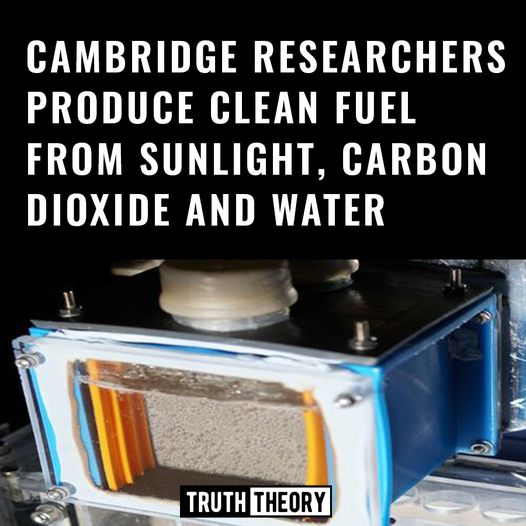A Cambridge University team has developed a device that turns sunlight, carbon dioxide, and water into carbon-neutral fuel.
The device works without any extra components and does not need any electricity.
The goal is for the device to be upscaled and to be used on energy farms, similar to solar farms.
It’s also a way to potentially reduce carbon emissions and of course to decrease reliance on fossil fuels.
The invention uses an advanced ‘photo sheet’ technology using photocatalysts. The sheets comprise semiconductor powders and these can be easily and cost-effectively manufactured in large quantities.
The cobalt-based catalyst is simple to produce and fairly to make and relatively stable.
It is said to be a big step towards achieving artificial photosynthesis – a man-made replication of plants’ ability to convert sunlight into energy.
The sunlight, carbon dioxide, and water are turned into oxygen and formic acid. This is a storable energy source that can be utilized directly or converted into hydrogen.
THE CHALLENGE TO DATE HAS BEEN TO MINIMIZE FUEL BY-PRODUCTS
“We were surprised how well it worked in terms of its selectivity,” said Dr. Qian Wang of the Cambridge Department of Chemistry. “It produced almost no by-products. Sometimes things don’t work as well as you expected, but this was a rare case where it actually worked better.”
It’s not quite ready for commercial production though as the researchers look at ways to improve efficiency further.
A team from the University of Tokyo has also been assisting with the research.
